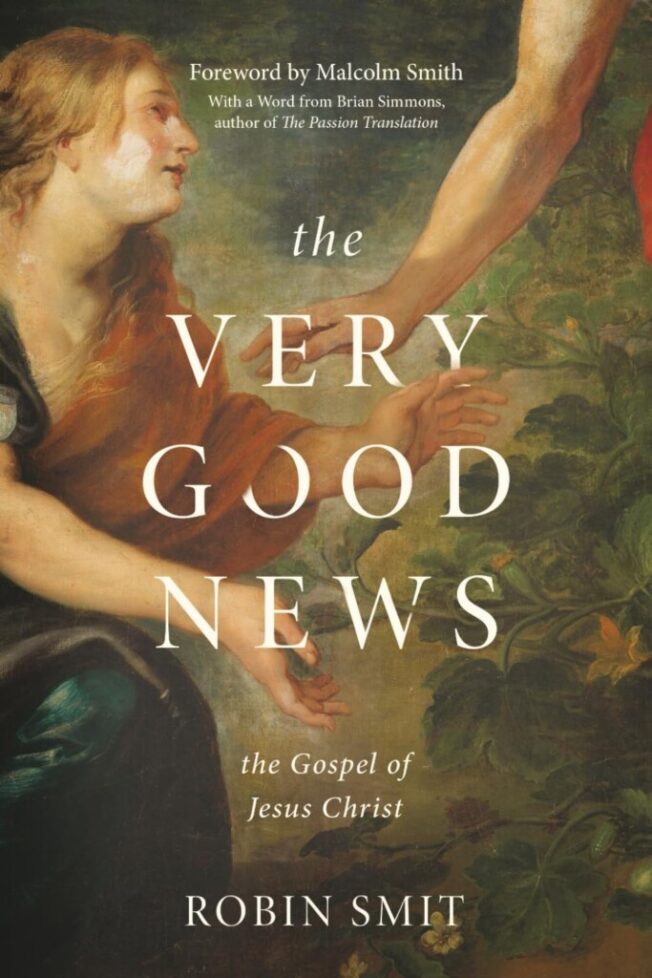To study the Early Church Fathers effectively, you’ll need a systematic approach that combines historical context with spiritual understanding. Start with accessible texts like The Apostolic Fathers and St. Athanasius’ “On the Incarnation,” while maintaining a study journal to track insights. You’ll want to avoid common pitfalls like proof-texting or neglecting cultural context. Prayer and guidance from knowledgeable clergy prove essential for traversing these foundational Christian writings. The journey through patristic wisdom offers transformative depths of understanding.
Key Takeaways
- Begin with accessible introductory works like The Apostolic Fathers before progressing to more complex theological writings.
- Maintain a study journal to record insights, questions, and connections while reading patristic texts systematically.
- Combine reading with prayer and spiritual guidance to enhance understanding beyond mere intellectual comprehension.
- Focus on one Church Father or specific theme at a time to avoid feeling overwhelmed by the vast material.
- Consult trusted Orthodox commentaries to understand the historical and cultural context of patristic writings.
Why Study the Early Church Fathers
While many Christians focus solely on Scripture, studying the Early Church Fathers provides invaluable insights into how the earliest believers understood and practiced their faith. You’ll discover their interpretations of Scripture, worship practices, and theological developments that shaped Christianity’s foundations.
The Fathers’ writings offer essential historical context for understanding how the Church addressed early controversies and developed its doctrinal positions. Their works reveal the theological significance of key Christian beliefs, from the nature of Christ to the role of the sacraments. You’ll also gain perspective on how they defended the faith against heresies and maintained apostolic tradition.

Best Practices for Reading Patristic Texts
Since approaching patristic texts can be challenging for modern readers, adopting effective reading practices will enhance your understanding and engagement with these ancient writings. You’ll need a solid foundation in contextual understanding and reliable secondary sources to navigate these complex texts effectively.
- Begin with accessible introductory works, such as The Apostolic Fathers, before tackling more complex theological treatises
- Consult trusted Orthodox commentaries and secondary sources to gain historical and cultural context for the writings
- Read systematically and slowly, focusing on one Father or theological theme at a time
- Keep a journal to record insights, questions, and connections between different patristic texts
- Discuss your readings with knowledgeable clergy or study groups to clarify difficult concepts and avoid misinterpretation
Common Pitfalls and Misconceptions
Because readers often approach patristic texts with preconceived notions, several common pitfalls can hinder their proper understanding and application. You’ll need to avoid misunderstanding context by recognizing that the Fathers wrote in specific historical and cultural settings that differ greatly from today’s circumstances. Don’t fall into the trap of overemphasizing authority by treating patristic texts as equivalent to Scripture or using them for proof-texting arguments.
Another common mistake is approaching the Fathers’ writings purely intellectually while neglecting their primary purpose of spiritual edification. You’ll benefit most from these texts when you read them prayerfully, seeking personal transformation rather than ammunition for theological debates. Remember that the Fathers themselves emphasized the importance of practical Christian living through prayer, fasting, and charitable works over mere academic knowledge.
Essential Writings for Beginners
When commencing on patristic study, new readers should begin with accessible foundational texts that provide clear introductions to early Christian thought. For those seeking essential texts and beginner resources, you’ll find several vital works that form the bedrock of patristic understanding.
- St. Athanasius’ “On the Incarnation of the Word” offers a clear exposition of Christ’s divine nature
- The Apostolic Fathers collection provides direct links to apostolic teaching
- St. Irenaeus’ “On the Apostolic Preaching” presents fundamental Christian doctrine
- St. Basil’s “On the Holy Spirit” illuminates Trinitarian theology
- The Didache reveals early Christian worship and practice
These foundational works establish core theological concepts while remaining relatively straightforward in their presentation. You’ll find these texts particularly valuable as they combine doctrinal depth with readable prose, making them ideal entry points into patristic literature.
The Role of Prayer and Guidance in Patristic Study
Through the profound journey of studying patristic literature, prayer serves as an indispensable guide that illuminates the deeper spiritual meanings within these ancient texts. You’ll find that prayer importance extends beyond mere intellectual comprehension, as it opens your heart to receive the wisdom contained in patristic writings.
The guidance necessity becomes evident when you encounter complex theological concepts and historical contexts. You’ll need both spiritual and academic direction to navigate these waters effectively. Rather than approaching the Church Fathers’ works as purely academic texts, integrate prayer into your study routine. Begin each reading session with a moment of reflection and supplication, asking for discernment and understanding. This prayerful approach will help you grasp not just the words, but their transformative spiritual essence.

Frequently Asked Questions
How Long Did the Early Church Fathers Period Historically Last?
You’ll find the historical timeline of Church Fathers spans roughly from 100-750 AD, beginning with influential figures like Clement of Rome and concluding with John of Damascus, marking Christianity’s formative theological development period.
Did the Church Fathers Ever Disagree With Each Other on Doctrine?
Like thunder in ancient halls, you’ll find that Church Fathers engaged in notable theological debates and doctrine disagreements. They differed on issues like baptismal practices, Christology, and the precise nature of the Trinity.
Which Languages Were the Original Church Fathers’ Texts Written In?
You’ll find most Early Church Fathers wrote in Greek, particularly in the Eastern regions. Later Western Fathers used Latin. Many Greek manuscripts were eventually translated into Latin to reach broader audiences throughout Christendom.
Do you have a longer list of recommendations?
A quick listing of important Patristic material:
- St. Ignatius of Antioch – important particularly for his understanding of early Church order and the sacraments.
- St. Irenaeus of Lyons – his grasp of the role of Tradition in the Church is seminal. Trying to read through his Against the Heresies is impossible or will at least make your hair hurt.
- St. Athanasius – his De Incarnatione Verbum is among the most important of all early Church writings. It is basic to our understanding of what salvation means.
- St. Basil the Great – On the Holy Spirit is a short, but important work. Secondary writings on his work can be extremely helpful.
- St. Gregory the Theologian – a friend of St. Basil’s. Many of his homilies are at least as good as St. John Chrysostom’s.
- St. Gregory of Nyssa – harder to read than his brother, St. Basil. Read him with help if at all.
- St. Cyril of Alexandria is worth reading, at least in secondary writings.
- St. John Chrysostom – for me his sermons serve as an outstanding commentary on the New Testament. Always a good read.
What Role Did Women Play in Preserving Early Church Fathers’ Teachings?
You’ll find that female scholars, particularly in early monasteries and convents, played an essential role by copying, translating, and preserving patristic texts. Women’s theological influence extended through their educational and preservation work across centuries.
Conclusion
Like a diligent miner extracting precious gems, you’ll discover that studying the Early Church Fathers yields invaluable spiritual treasures. As you’ve learned, approaching these texts requires both scholarly dedication and spiritual preparation. Through systematic reading, prayer, and proper guidance, you’ll deepen your understanding of Christian theology while avoiding common interpretative pitfalls. You’re now equipped to begin this transformative journey into patristic wisdom.
✦ Watch and Learn: Continue Your Journey
Studying the Early Church Fathers is deeply enriched by thoughtful teaching and spiritual insight. To support your journey, and Brandon’s article further motivates you to “dig in”, here are two highly recommended teachings from hosts featured on GAN – Grace Awakening Network, both of which align beautifully with the themes explored in this article:
🔗 How to Understand the Bible – Part 1
Grace For All with Bishop Jamie Englehart
In this episode, Jamie Englehart unpacks how to approach Scripture through a Christ-centered, New Covenant lens. A perfect foundation for understanding the Bible in light of early Church tradition and grace theology.
🔗 No Exceptions – “He Descended to the Dead” Part 1 (The Apostles’ Creed Series)
No Exceptions Ministries Creed Series with Dr. Matt Pandel
This powerful teaching explores one of the most mysterious and profound lines of the Apostles’ Creed through the lens of early Church understanding. It provides rich historical and theological context for Jesus’ descent and the hope of restoration for all.
✧ Note: This episode is also available on YouTube and features a GAN host committed to communicating early Christian wisdom with clarity and compassion.
Watch HERE NOW:
Stay tuned for more recommended resources as you continue your journey into the depth of patristic wisdom and spiritual transformation.











